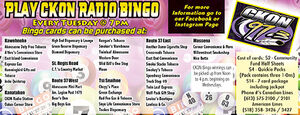Here are 5 steps to take when you know for sure that your kid is using drugs or alcohol Part 2
I know my kid child is using:
Get focused
Start talking
Set limits
Monitor
Get outside help
1. Get focused
The first step is to get focused
Sit down relax and take time to breathe then:
Talk with your spouse/partner: you want to present a united front to your child
Prepare to be called a hypocrite: Kids may challenge you about your current or past use. Don’t get diverted, the issue here and now is their use, their health, and their safety. It’s not about your past, it’s about their future.
Gather any evidence: Prior to having the conversation, identify the specific reasons why you think they are using.
Expect denial and possible anger: The most important thing is to keep the conversation going Resolve to remain calm, no matter what your teen says. Try not to be baited to respond with anger of your own.
Set an expected outcome: While it’s good to open up the conversation with your teen in any capacity, your conversation will probably go more smoothly if you have desirable outcome in mind. A reasonable objective like simply expressing that you don’t want her to use can be small triumph.

Spell out rules and consequences: Have an idea of the rules and consequences you’d like to set going in. Listen to your teen’s feedback and let him help negotiate rules and consequences. Don’t set rules you will have no way of enforcing.
Recognize the significance of addiction in the family: Drug and alcohol dependence can happen to anyone. But if there is a history of addiction (cocaine, alcohol, nicotine, etc) in your family then your child has a much greater risk of developing an addiction. As a parent you need to be aware of this elevated risk and discuss it with your child regularly, as you would with any disease.
Remind your teen of your support: As angry or frustrated as you feel try to speak from a place of love, caring and concern and express these feeling to your teen. Explain to your that the reason you’re talking with her and asking questions is because you love her and care about her and want her to be healthy and successful.
2. Start Talking
Starting a conversation with your child about his or her drug use is the most important step you can take in helping your child.
Prepare yourself
Have a conversation not a confrontation. Express to your child that you’re worried about her (example), “You haven’t been yourself lately”
Don’t just talk, listen: Don’t answer the phone, cell phone, or text. Don’t allow other interruptions while you’re talking to your teen, Give them time and space to express them. Rephrase your teen’s comments to show him you’ve heard what he’s saying or give nonverbal support and encouragement. One of the toughest things to do is break though your teen’s barriers.
Find the best way to break through your teen’s barriers: Be firm and loving. Don’t yell. Remain calm. It’s harder to fight with or storm off from a calm person than it is from somebody who is yelling at you. Insist that your teen acknowledges and understand the value of truth telling. Tell her that people trust you more when you are honest. That honesty is highly respected trait that requires courage and independent thought and usually liars get caught in their lies.
Let them know the importance of the truth. Telling the truth is not only important, it is the only way that you can get to the bottom of the problems he or she is facing.
3. Set Limits
Kids want freedom: You don’t want to be a nag. But when you’ve discovered drug or
alcohol use all bets are off.
Lay down the rules: Rules provide a concrete way to help your kids understand what
you expect and learn self-control. Don’t just assume that they “know” you don’t want
them to drink or do drugs. Teens don’t deal well with gray areas so when they’re
offered alcohol and drugs you don’t want any confusion in their minds.
Set firm consequences: Setting firm consequences for when your rules are broken is
actually a help to your teenager making it clear what they are to do and not to do.
For rules to matter they must be enforced. Be consistent and make the consequence
appropriate to the rule that has been broken.
Create a contract:
Your name
Your child’s name
Child and parent both sign contract
Child’s part:
I will not drink or take drugs
I will not drive while under the influence of drugs or alcohol
I will not get in a car with someone who has been drinking or using drugs
If I feel unsafe or uncomfortable, I will call you, my parent or guardian for a ride home
I will be honest
I will talk to you when I am upset, scared, or confused. Even if I’m afraid you’ll be angry or disappointed.

I will accountable for my actions
Parent’s part:
I will make myself available to you whenever you need me
I will provide a comfortable, safe, respectful place to talk honestly
I will keep an open mind
I will listen
I will not overreact or judge you for things that don’t make sense to me
I will love you for who you are
4. Monitor
Collect evidence: Parents decide whether or not to look through their child’s room and belongings. If you do remember, it’s your house and your primary responsibility is the well-being of your child.
Keep track: Knowing what did or didn’t happen can prevent he said/ she said conversations. Start your monitoring.

Whether you know your child has used, or think they’re using it is important to know what is going on in their lives. You must decide whether or not to look through your child’s things. Your key consideration has to be whether your concerns for their health and safety are more important than their desire for privacy. You want to keep track of what you find and incidents that cause you concern so that you don’t have a he said/she said conversation.
Ways to monitor Your Teen:
Be around your teen. Spend time with your child to observe, talk, and check in with your teen.
Manage your teen’s activities. So you know her whereabouts and who she’s spending time with and what they are doing.
Reach out to other parents in your community so that you can all help keep an eye on one another’s kids.

5. Get outside help
Outside help doesn’t equal rehab. There are many actions and approaches you can take that have nothing to do with rehab. I should point out there are times when rehab would be the best place for your child.
When seeking outside help:
Find out extent of problem
Why does my child need help?
Who can help my teen?
Get help for the rest of your family
Finally, be open and willing to get outside help.
While some situations may require your child to enter a treatment facilities don’t be put off by the term “get help”. Outside help includes school counselors, your family doctor, and even your child’s sports coach. All of them can be resources and sources of support for you and your teen during this time.
When you seek outside help you want to know:
What is the extent of the problem? Your child’s drug use can be an act of teenage rebellion, a sign of fully fledged addiction, or anything in between. What you need help with first is identifying the actual problem. Professionals can use methods to help you pinpoint the issues you’re dealing with. By getting help from a professional a drug and alcohol assessment will have to be completed. This is done face to face between your child and a counselor.
Who can help my teen? In addition to the people mentioned above you can connect them with caring adults especially someone your teen already knows and trusts: members of the clergy, counselors, teachers, and treatment centers.
How can you help the rest of your family? Drug addiction affects more people than just the addict. Even if your non drug using children seem okay, chances are they’re harboring some resentment towards their sibling and you for his destructive behavior or all the attention he’s receiving or may live in fear of the drug user’s unknown future. By getting help to make sure that your other children are emotionally stable and fully comprehend their brother or sister’s situation you’re aiding in everyone’s recovery and healing process. It also helps the non using sibling to have his feeling of resentment and anger validated. They have a right to be angry, frustrated and hurt about the situation.
You (and your partner) must also be healthy and in clear state of mind. Many parents lose the ability to think and act rationally when they have a child in danger. Some parents become so obsessed with their child and her problem that they neglect the other important aspects of their own lives: their jobs, physical health, and the other kids. It is therefore as vital that you seek help for your own emotional well-=being as it is for your drug-using child.
For more information call the Wholistic Health and Wellness Program 613-575-2341 ex 3104





Reader Comments(0)